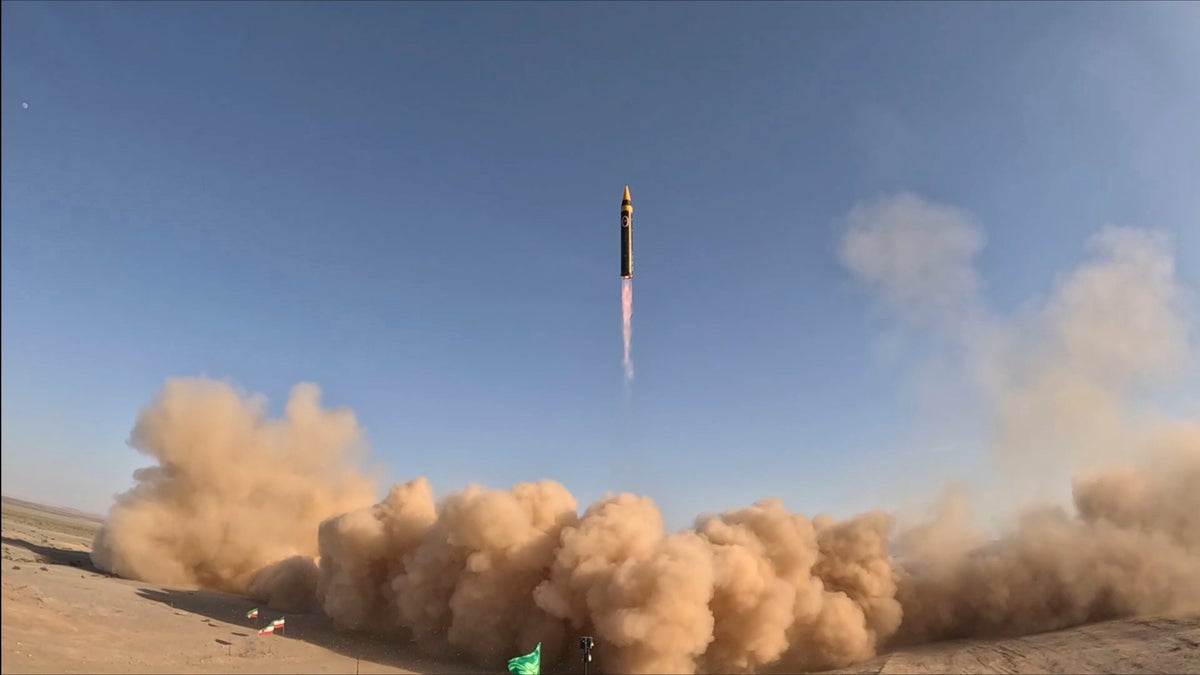
Iran unveiled on Thursday what it dubbed the latest iteration of its liquid-fueled Khorramshahr ballistic missile amid wider tensions with the West over its nuclear program.
Authorities showed off the Khorramshahr-4 to journalists at an event in Tehran, with the missile on a truck-mounted launcher. Defense Minister Gen. Mohammad Reza Ashtiani said the missile could be prepared for launch in a short period.
Iranian officials described the missile as having a 2,000-kilometer (1,240-mile) range with a 1,500-kilogram (3,300-pound) warhead. They also released undated video footage purportedly showing a successful launch of the missile.
The Khorramshahr-4 is named after an Iranian city that was the scene of heavy fighting during the Iran-Iraq War in the 1980s. The missile also is called Kheibar, after a Jewish fortress conquered by the Muslims in the 7th century — in what is now Saudi Arabia.
Regional tensions likely played a role in Iran's missile display Thursday. A miniature example of Jerusalem's golden Dome of the Rock on the Al-Aqsa Mosque compound, a holy site in both Islam and Judaism that Jews call the Temple Mount, stood next to the mobile launcher.
Iran views Israel as its archenemy and arming anti-Israeli militant groups in the Palestinian territories and surrounding countries. Tensions between the two nations are high, particularly as Iran enriches uranium closer than ever to weapons-grade levels. The Khorramshahr would be able to reach Israel.
It remains unclear, however, why the missile has been called Khorramshahr-4 as only two other variants of the missile are publicly known. It is modeled after North Korea's Musudan ballistic missile.







